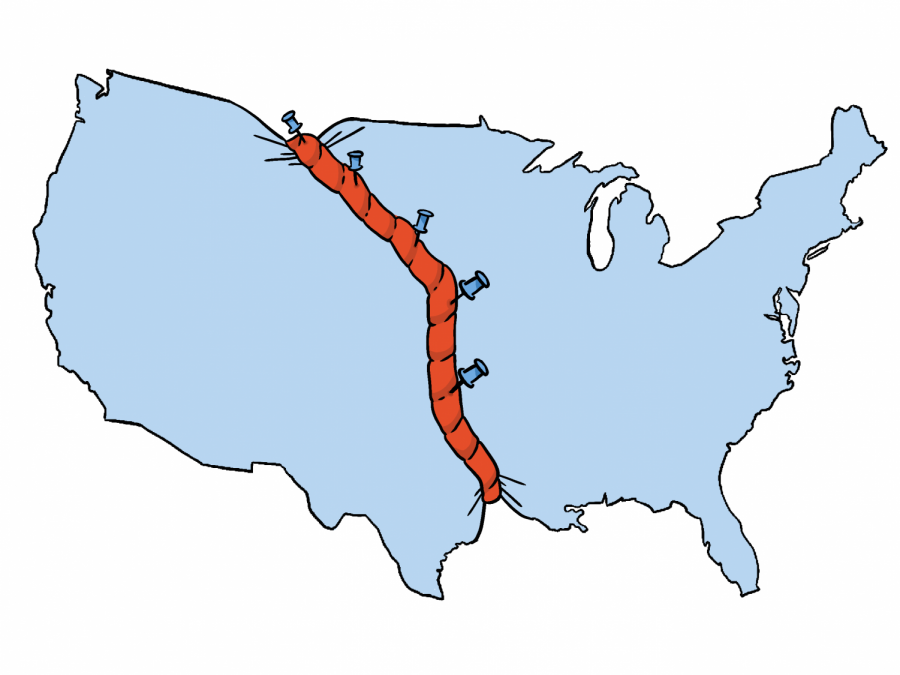The Cancellation of the Keystone XL Pipeline: More Has to Be Done
February 26, 2021
For the past decade, the United States has had an on-and-off relationship with the Keystone XL (KXL) Pipeline. First proposed under George W. Bush in response to crude oil prices reaching all-time highs, the project was canceled by the Obama administration, revived under Trump, and now canceled again through an executive order signed by Biden on his first day in office. The move is not without controversy. Critics are quick to cite job losses, increased dependence on foreign oil, and the insignificant impact that canceling the pipeline has on the environment as downsides of the decision. Proponents of Biden’s decision, on the other hand, argue that the cancellation is an active step towards weaning America off of fossil fuel reliance—symbolic of where the country should be heading. But, the pipeline’s 12 years of limbo have revealed what has become glaringly obvious: while the KXL has no good reason to exist in the first place, canceling it is not a victory for environmentalists either.
Since its inception, the KXL’s role in American politics has been confusing. The pipeline does not carry American oil, nor does it bring oil to American refineries and markets. The proposed pipeline brings tar sand oils from deposits in Alberta, Canada, and connects them with existing lines around Oklahoma. There, it will eventually reach Port Arthur in Texas to be transported overseas. Because Port Arthur is a tax-free foreign exchange zone, not only does the project sacrifice American land for Canadian oil interests, but the U.S won’t receive any tax revenue either. Furthermore, touted job estimates vary wildly, with TransCanada Energy claiming up to 119,000 person-years of employment compared to a more accurate State Department report estimating 2,000 for construction and only 35 permanently employed. All of these issues pale in comparison to the potential environmental effects of the KXL. Extracting tar sands produces more waste and pollutants than every other fossil fuel production process on Earth; involving burning ancient boreal forests—northern taigas that are essential to providing clean air. The byproducts from the refinement and extraction process can cause stillbirths and thyroid and lung cancer that disproportionately affect indigenous communities. A recent study has shown that the extraction of these oil sands could lead to sulfur rain that would acidify a region the size of Germany.
The KXL pipeline would have provided the infrastructure for this destruction to continue, and while its cancellation certainly is a good step, it does not mean an end to the problem. The KXL project actually expands on an existing pipeline, named the Keystone. This pipeline, like its larger counterpart, also moves tar sands across the U.S from Canadian oil fields—albeit at a slower rate. Depending on the attitudes of this presidency, the cancellation of the KXL pipeline might actually prove to be a decision that ends up biting America back. Tar sands will still be transported, and the absence of a dedicated pipeline like the KXL might mean that oil companies will move towards shipping through freight trains. This alternative method is far more prone to spills and leaks, magnifying the danger that canceling the KXL attempted to address in the first place.
The Keystone XL pipeline is an isolated issue. The fossil fuel industry, the root of the problem, continues to thrive: more stories like the KXL will continue to appear. Scrapping a pipeline is a victory, but remains wholly ineffective compared to blunter, more significant changes, such as a carbon tax or a total ban on fracking and tar sand production. It is up to the Biden administration to decide whether the cancellation of the KXL is enough, or whether they want to make real progress towards environmental change and a sustainable America.











